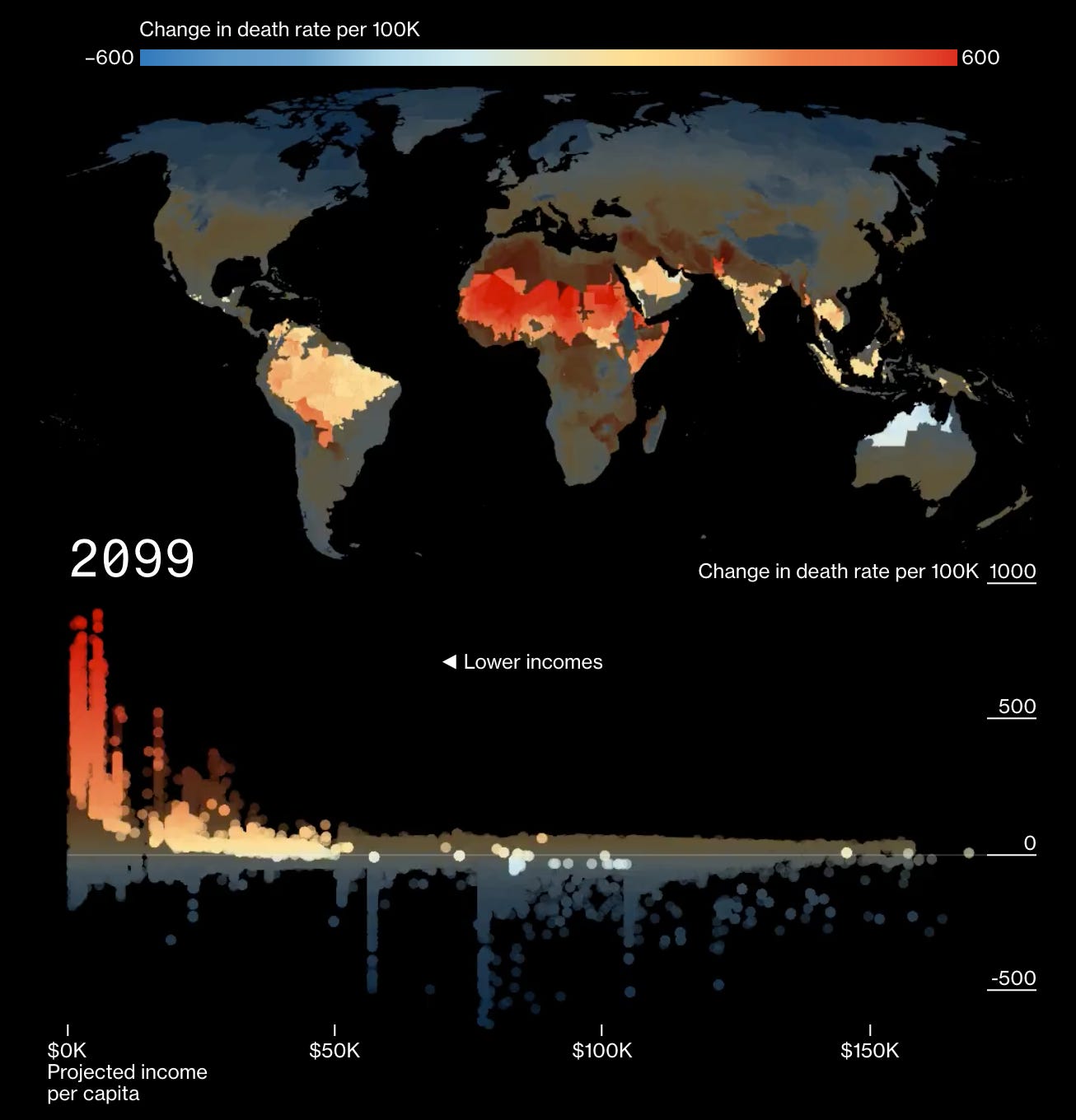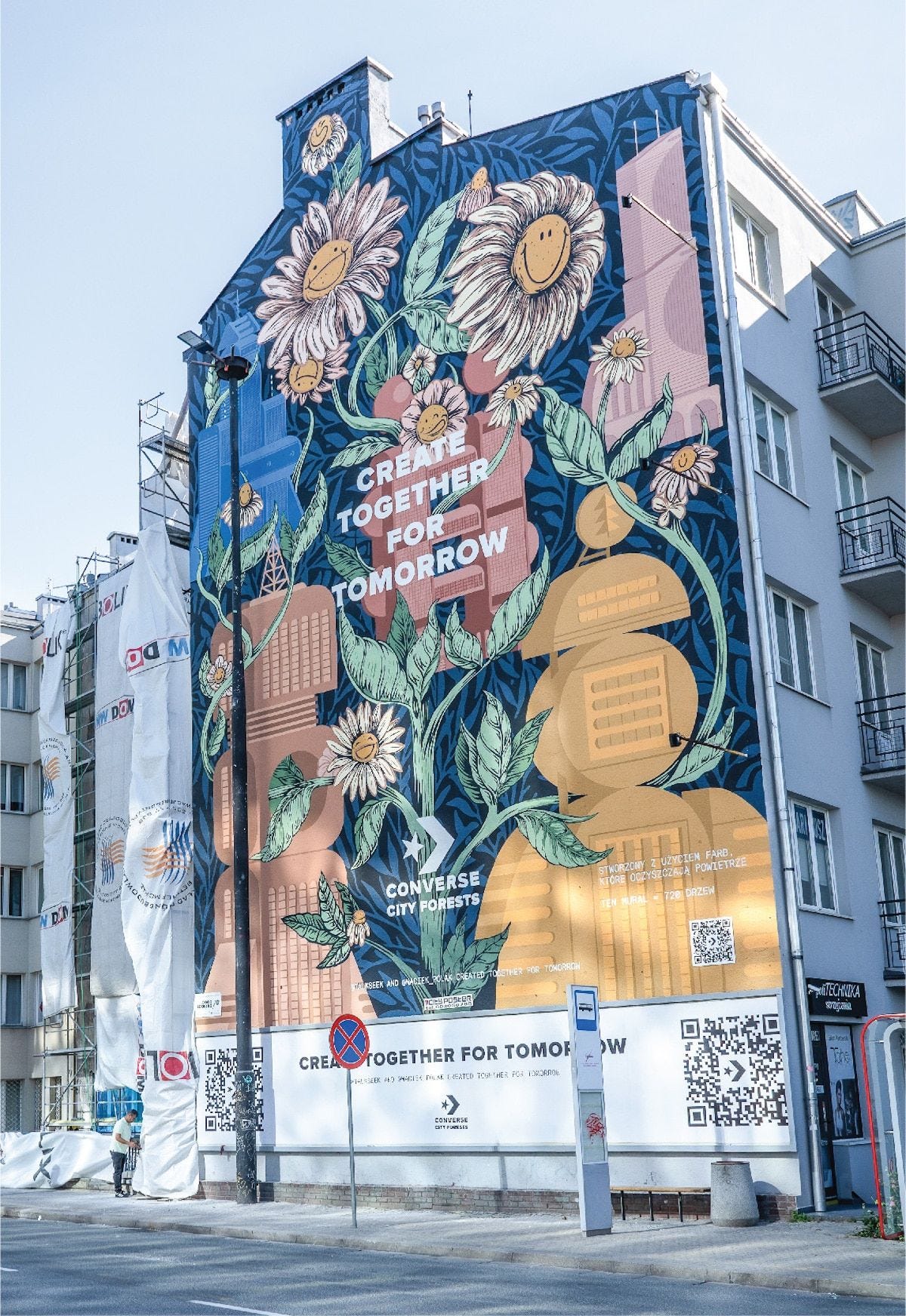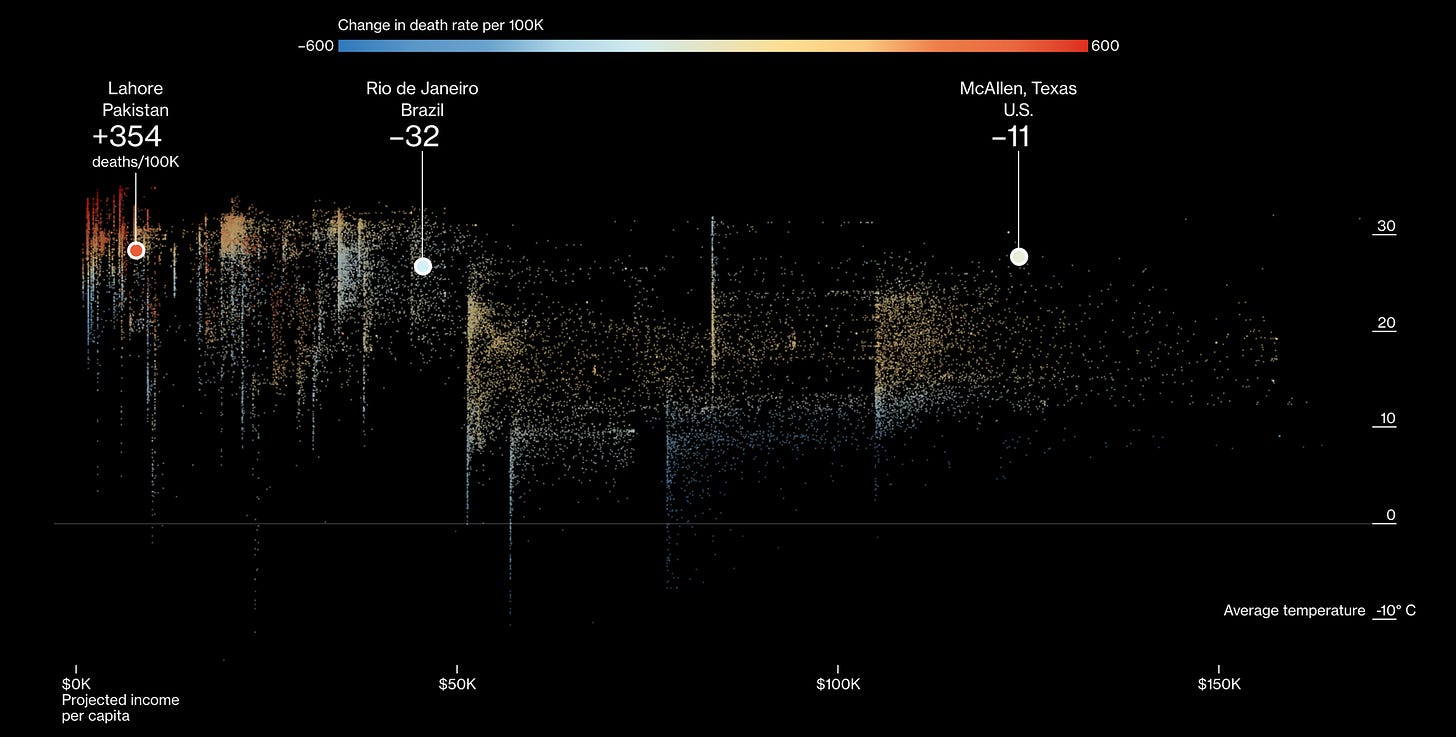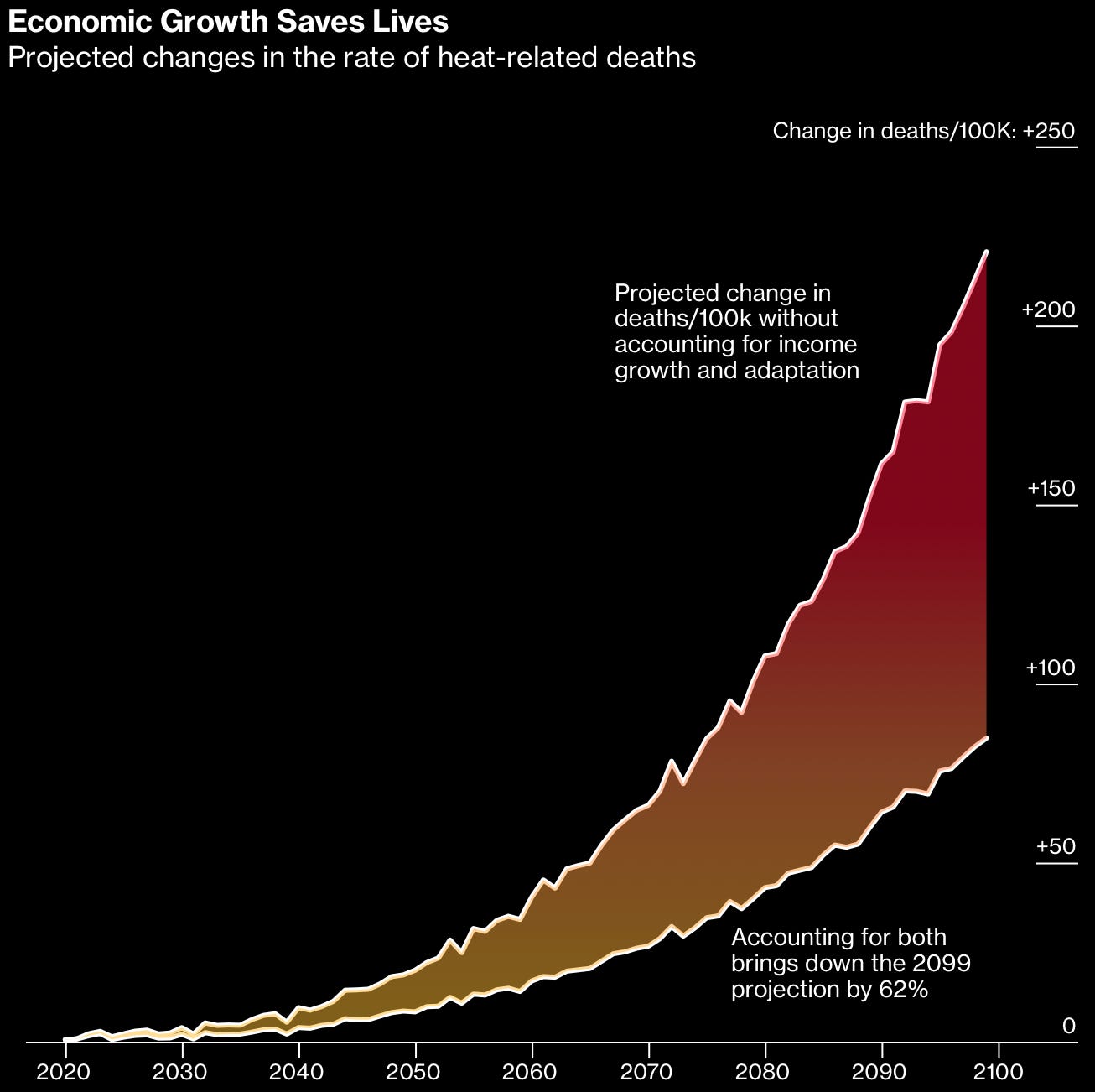🔥 Killer Heat is Here

Weekly subscribers recently received a free copy of The Velvet Rope Economy by Nelson Schwartz and learned more about why big chain restaurants like Chipotle are here to stay despite the pandemic. Good news for lovers of fat burritos. Bad news for small family restaurants. Join the weekly subscriber community.
What will living in a "hot zone" look like for most people?
Climate change is here. And it will hit some people so hard that they will not survive. Importantly, your future risk of dying from heat will be determined more than anything else by where you live and how much you earn.
Poor people in rich countries and all people in poor countries live in places without adequate air conditioning, protective infrastructure, and elder care options. As the world warms, they will die from extreme heat at much higher rates, even compared to wealthier peers who experience the same exact temperatures.

Places like Ghana will suffer double the average global deaths they do now - due solely to a change in the climate. Meanwhile, countries like Norway - already a wealthy country, will actually see a decline in deaths (for instance, from suicides and other mental health issues) due to the longer and much more pleasant summers that climate change will bring about there.
Extreme heat carries a higher risk of death than extreme cold, and this disparity grows over time.
Colder nations like Norway, Canada and Finland have smaller populations spread out over huge landmasses, whereas warmer nations tend to have greater populations squeezed into a smaller land area. Climate change will further exacerbate this inequality - creating opportunity for previously frozen over countries to expand their population and extract natural resources, while warmer nations will see death tolls rise in already crowded urban communities.
Inequality in heat mortality is most easily observable when comparing regions that have similar future climates but vastly different future incomes:
Over the next fifty years, working outside for just a few hours will carry a grave risk. Those who are the poorest, or those who we today call "essential workers" that work outside, sometimes without adequate protection from the heat - they will all be the hardest hit. Indeed, we don't have to wait to see the stark impact climate change is having on the planet: 1.5 million people have died from COVID this year. Meanwhile, climate change has taken ten times as many lives during the same period.
The good news is that the same kind of economic investment currently being made to fight COVID can curb climate change within half a decade.
A little bit of fairness cuts climate change deaths by 62%
An amazing thing happens however when we raise the nominal incomes of the bottom third of American earners: doing so erases more than half of the heat-related death risk in the future.
How do we do this practically?
Reduce or eliminate the mortgage interest tax deduction: since most homeowners tend to be richer than renters, we are currently subsidizing housing for the rich more than for the poor. And since renters are more likely to live in cities and homeowners in suburbs, we are taxing cities to subsidize suburbia and encouraging sprawl and further exacerbating climate change. Instead of increasing homeownership, the mortgage interest deduction just helps people buy bigger homes, a huge waste of resources.
Invest in affordable rental housing. The cost of housing plus transportation is outpacing income growth. The federal government spends far less on affordable rental housing than it does on subsidizing home ownership for the affluent. As the mortgage interest deduction is phased out, some of that money could be spent on programs to support affordable housing that is well integrated into the community, such as Section 8 housing vouchers.
Eliminate subsidies for fossil fuel development.
Raise the gasoline tax to fund mass transit (even the hyperloop). Currently, federal mass transit spending is supported by the gasoline tax, which hasn’t been raised in more than 20 years and so has lost one-third of its value to inflation. Raising the federal gasoline tax, even by a few cents and then pegging it to inflation would pay massive dividends. We could then use the extra money to help lower-income Americans pay for clean transit options.
Invest in innovative programs like this mural in Poland that actually breaks down pollutants into harmless nitrates.

The engine of development that unleashed dangerous emissions over the past two centuries has also lifted billions out of poverty and poor health. Its biggest job yet will be climate adaptation.
🎧 Coming Up on the UnfairNation Podcast
Isabel Wilkerson - on the origin of the modern caste system.
Tim Bakken - on the role the armed forces play in public policy.
Tom Parker - on why respect for human rights is the key to defeating terrorism.
🕺🏽 Friends
Looking for a holiday gift? Check out incredible feminist protest art from CandidAlmond (by friend Deb Almond). Use the code UNFAIR20 for a discount.
📅 Now
Watching: Halt and Catch Fire (Slog through Season 1. Season 4 is a triumph)
Speaking: Reason & Respect Speaker Series at SUNY
Going: to Los Angeles, for good (LA people, hit me up for a Zoom chat)
🙌🏽 FairNation
"We're not getting a lot out of Joyce in terms of words" – Barack Obama.
Happy holidays everyone. This has been a tough year, but we are almost done. I am always privileged and humbled to have this community as readers, supporters and as friends. Thank you.
Be open minded, but not so open minded that your brains fall out.





